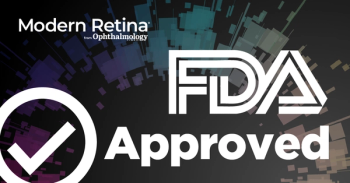
First patient dosed in Vantage Biosciences' phase 2 study of VX-01 for nonproliferative diabetic retinopathy
VX01-DR-201, is a phase 2, multi-center, double-masked, randomized, placebo-controlled study in patients with moderate to severe NPDR without center-involved diabetic macular edema (CI-DME).
Vantage Biosciences has successfully dosed the first patient in its phase 2 clinical study evaluating VX-01, an oral therapy for the treatment of
VX01-DR-201, is a phase 2, multi-center, double-masked, randomized, placebo-controlled study designed to evaluate the efficacy of oral dose of VX-01 in patients with moderate to severe NPDR without
VX-01 is an orally administered small molecule therapy designed to target neurovascular inflammation associated with diabetic eye disease and aims to slow or prevent disease progression in NPDR patients before irreversible vision loss occurs.
Alek Safarian, co-founder and chairman of Vantage Biosciences, commented on the trial in a press release from the company, saying, “We are pleased to initiate patient dosing in this important phase 2 study, which evaluates VX-01 as a potential early intervention for diabetic retinopathy. By targeting the disease at an earlier stage, VX-01 has the potential to slow or prevent progression to more severe forms of diabetic retinopathy, reducing the likelihood that patients will require invasive treatments in the future.”
The company stated that the study is expected to read out in 2027 and is being run at 27 sites across the US, Australia, and a number of Southeast Asian countries.
References:
Vantage Biosciences doses first patient in phase 2 clinical study of oral VX-01 for non-proliferative diabetic retinopathy. Published April 11, 2025. Accessed April 11, 2025.
https://www.globenewswire.com/news-release/2025/04/11/3059941/0/en/Vantage-Biosciences-Doses-First-Patient-in-Phase-2-Clinical-Study-of-Oral-VX-01-for-Non-Proliferative-Diabetic-Retinopathy.html
Newsletter
Keep your retina practice on the forefront—subscribe for expert analysis and emerging trends in retinal disease management.



























